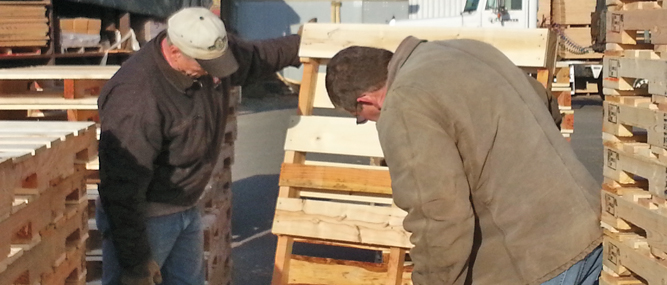“We work really hard to give our subscribers in lumber and wood packaging a ton of service,” said Jeff Fantozzi, president of the Pacific Lumber Inspection Bureau (PLIB).
Established in 1903 by a group of lumbermen in Oregon, Washington and British Columbia, the organization began as a lumber inspection agency. But today it does much more than provide inspections and stamping, said Fantozzi.
While lumber grading and quality control remain at the core of its business, the PLIB today offers many services to its subscribers, from assisting them in solving production and quality problems and maintaining best practices, to helping them to become established in and maintain compliance with numerous national accreditation programs.
The PLIB offers a number of certification programs for Canada and the United States, including ISPM-15, which it offers in both countries. ISPM-15 is an international standard developed to reduce the spread of wood-born pests in solid wood packaging materials, such as pallets and crates.
It’s somewhat unique that the PLIB offers this program in both countries. “I am not aware of another agency that provides ISPM-15 services in both the U.S. and Canada,” said Fantozzi.
The PLIB has around 75 members in the wood packaging industry, including those in the crating and pallet markets. Without certification in these programs, producers of lumber and wood packaging wouldn’t be able to get their product to market.
The PLIB has a staff of six full-time employees plus several part-time workers at offices in Federal Way and Longview, Washington; Creswell, Oregon; Kamloops and Vancouver, B.C. But the organization’s size is not necessarily a disadvantage, said Fantozzi. “Because of our small size, we are very nimble and very responsive.”
Some jobs also overlap, which can give staff insightful perspectives into member needs and issues, he explained.
Ben Haynes, for example, is the PLIB’s technical and special programs manager. He is in charge of the ISPM-15 program and spends half his time managing programs in the Federal Way office. But he spends the other half out in the field as an inspector, learning about the challenges facing subscribers.
“From the inspectors that go into the facilities on a monthly basis to us here in the office, we are able to connect to every one of our subscribers pretty well,” said Haynes. “We are good at reacting when one of our members has an issue.”
One subscriber, for example, had shipped products to China on pallets which were quarantined at the port and not allowed to continue to the buyer, said Haynes. The PLIB stepped in, provided an expert opinion on the product in question and got the Department of Commerce involved, to get the issue resolved.
A lot of subscribers also have issues with processes such as heat treating. “We work with them on solutions to help them maintain compliance,” said Fantozzi. “We don’t just come in and do inspections and leave. Whatever it takes to get the job done, we’re there for the long haul as much as we need to be.”
“There’s a lot of collaboration in our industry,” he said, adding that having good communication with subscribers and amongst staff members is key because the organization handles regulatory issues.
“We operate pretty efficiently and our inspectors cover a lot of ground,” said Haynes. Because the staff is spread out between several offices in two countries, they rely on phone, email, texts and other forms of communication to stay in regular communication, which is needed to clarify regulatory changes and any issues that arise. “We have an incredibly versatile staff with experience and expertise in so many areas that are important to our subscribers – and we’re nice people to work with.”
“We are also very involved in the regulatory bodies that make the standards we have to comply with,” said Fantozzi. These include the American Lumber Standard Committee, United States Department of Agriculture’s APHIS, and the Canadian Lumber Standards Accreditation Board. “We sit on countless committees and task groups and this involvement translates to better knowledge and service and provides strong representation for our subscribers.”
The PLIB member mills produce approximately 4 billion board feet of softwood lumber annually. For more information, contact 253-835-3344 or visit www.plib.org.





